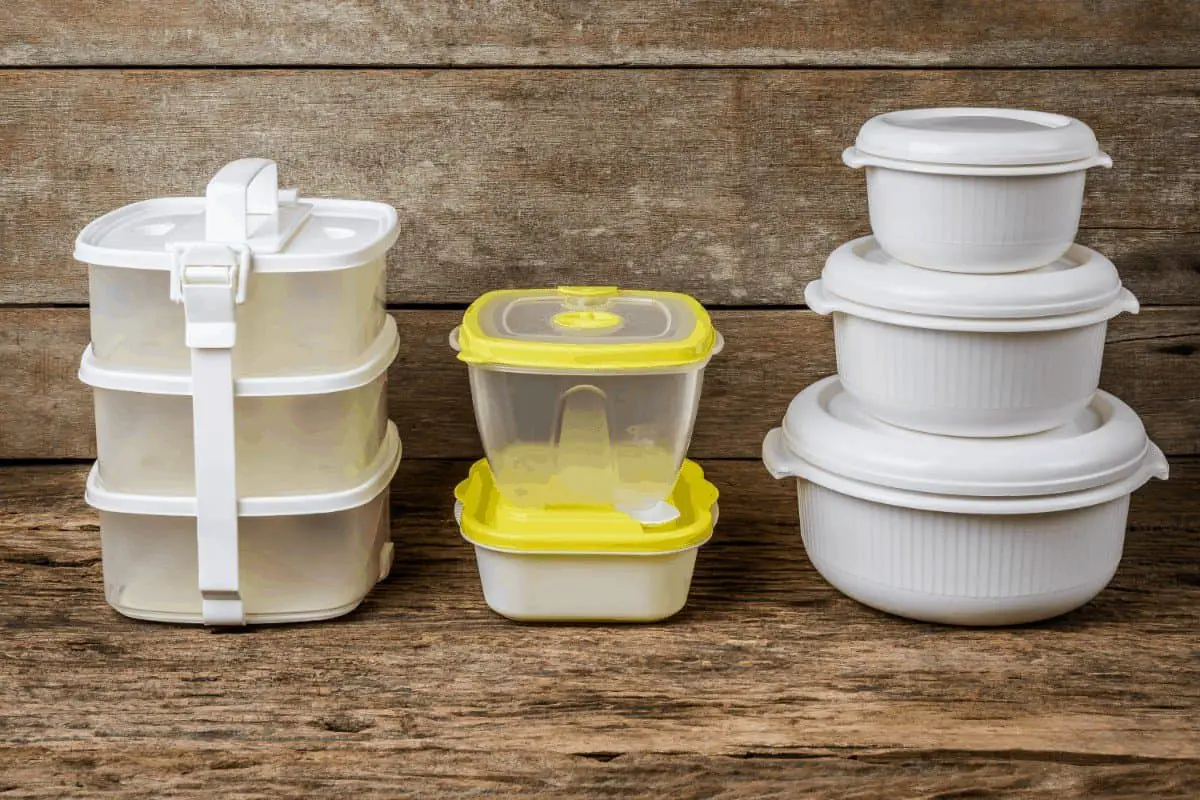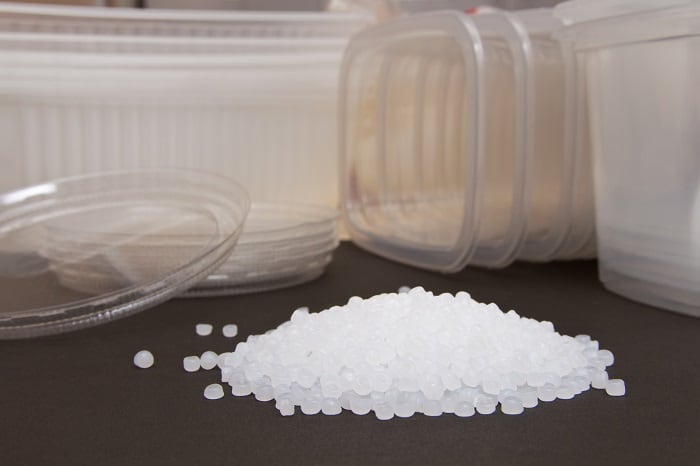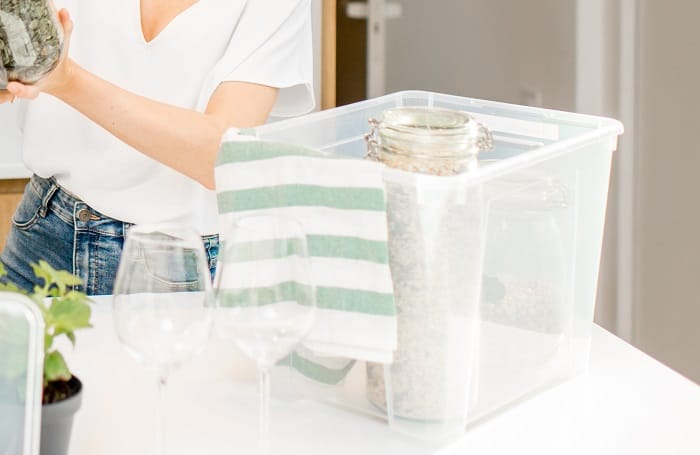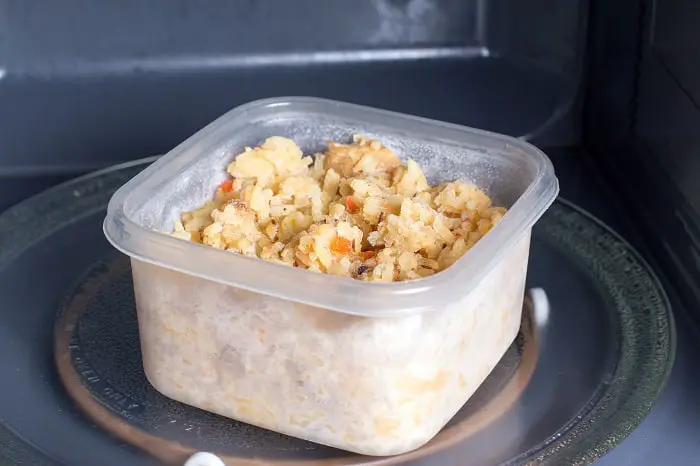Tupperware plastic products are mainly used for storage of food but there are also safety concerns that arise from using these products. Therefore, you should know about food safety and plastics and you may need answers to the following questions: “Do old Tupperware products have BPA? What to do with old Tupperware? Is it safe to use?”
These questions might not be sufficient to provide you with safety but they give you insight about how you can use these products. as such, this guide also gives you basic information about Tupperware products such that you can use them with due diligence.
Table of Contents
Do Old Tupperware Products have BPA?
Before attempting to answer this question, you must know what BPA is. According to the National Institute of Environmental Health, BPA is an abbreviation for Bisphenol A and this is a chemical that is often produced in large quantities. The chemical is primarily used in the production of epoxy resins and polycarbonate plastics which are used for different purposes including food and beverage storage.
While there are varying opinions about the safety of BPA between health organizations, researchers as well as governmental agencies, the general sentiment is that the chemical is potentially harmful to human beings.
For instance, BPA could be toxic to the development of the nervous system of newborn babies. On top of that, it can also be observed that BPA is linked to conditions like obesity and cardiovascular diseases in both children and adults. BPA can also cause other diseases like diabetes, reproductive disorders as well as breast cancer among others.
Plastics are very popular for food and beverage storage but at the same time, they are also big sources of BPA. Tupperware being a popular brand, many people are also concerned about whether it is BPA free or not. You need to be certain if you are not buying a product that contains BPA.
Tupperware states that as of March 2010 it has been selling products that are BPA free. In a bid to follow the guidelines of the regulatory agencies and its desire to protect the interests of the consumers, the company has found other materials with better performance and these are also BPA free in a bid to replace polycarbonate.
However, the statement above implies that products manufactured before 2010 may contain BPA so you should also be careful about when you buy them. To identify the products that may contain BPA, the following measures can be useful.
How to Identify Products with BPA?
Different plastic products that you can buy have the label “BPA-free” but that may not be enough. To identify a plastic product that is BPA free in your home, you must check its opaqueness. If you cannot see through the product, then it means that it is BPA free.
If the container is labeled microwave-safe or unbreakable, you should get rid of it since that is another indicator of showing that it has BPA. Polycarbonate plastics usually have a label number 7 on them but not all of them have this number.
Containers labeled hand wash only are okay to keep since they contain acrylic material and it is safe. Containers without recycling number and bought before 2012 are presumed to contain BPA so get rid of them. You must do some research to make sure that you do away with containers that may have BPA.
What to Do with Old Tupperware?
There are different things that you can do with old Tupperware. First and foremost, you should know that plastic is there to stay once created. The option of recycling plastic is good but it does not completely eliminate it from our respective communities.
Therefore, you can use your old Tupperware containers for composting. If you are conscious about environmental issues, you can use old containers for your compost in the backyard. This means that you will practice organic gardening which is free of fertilizers containing chemicals that can be harmful to the environment.
You can also use your old Tupperware containers for the storage of different items in your garage. You can use the containers to hold necessary junk like bolts, nuts as well as screws. The same containers can also be used for storage in the bathroom to hold things like pins and others.
You should just make sure that your food does not come close to your old Tupperware containers otherwise they remain useful. There is no need of disposing of the old containers since they can also serve other useful purposes in your home.
Is it Safe to Use?
Tupperware products that contain BPA are not safe to use for purposes of storing or microwaving food. There are some containers that are marketed as safe for microwave use but there is a danger that heating them can be dangerous. If the plastic container has toxicants, these may leach into food if they are heated. This can also be caused by the chemical reaction of acidic foods like vinegar, lemon juice or tomato sauce.
BPA issues raise a lot of concerns among customers toward polycarbonate products. However, this is not the only product that can leach toxicants that can contaminate your food. You must make sure that all your plastic containers are not damaged and know other leaching risks that can include the following.
- Overusing the plastic containers for a very long period
- Storing acidic food
- Putting food while the container is still hot
- Microwaving food in plastic containers
- Causing scratches to the containers
However, to be 100% safe, you can opt to switch to using glass for different purposes in your kitchen. Glass does not leach chemicals, dishwasher, and microwave safe, it does not stain and wear out.
Conclusion
Tupperware products are very popular and they are mainly used for storage of food. However, containers with BPA are not safe for your health so you must avoid letting them get into contact with your food. Old Tupperware products can still serve a useful purpose in your home such as composting and storage of other items so there is no need of discarding them.



